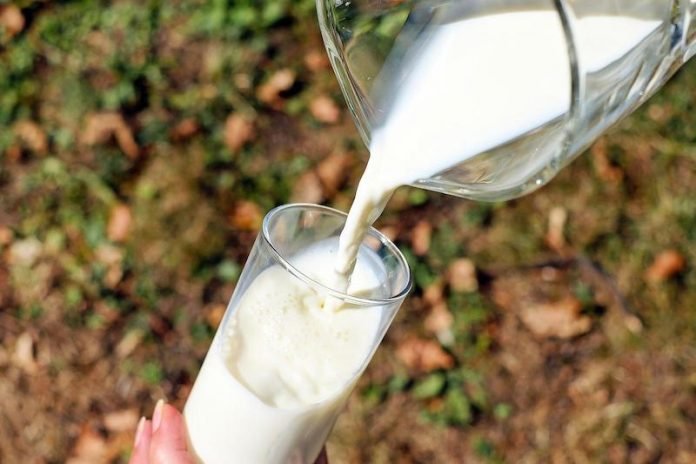
Scientists from Loma Linda University Health found that men with higher intakes of dairy foods, especially milk, face a much higher risk of prostate cancer.
They found no such links between increased prostate cancer risk and intake of non-dairy calcium, suggesting substances other than calcium play a role in the risk dairy foods poses for prostate cancer.
The research is published in the American Journal of Clinical Nutrition and was conducted by Gary Fraser et al.
In the study, the team evaluated the dietary intakes of over 28,000 North American men with a wide range of dairy and calcium exposure, all of whom were initially free of cancer.
They then used cancer state registries to follow up on the participants’ prostate cancer status for an average time of nearly eight years.
By the end of the study period, state cancer registries reported 1,254 new prostate cancer cases among the participants during follow-up.
The team found that men who consumed about 430 grams of dairy per day (1 ¾ cups of milk) faced a 25% increased risk of prostate cancer compared to men who consumed only 20.2 grams of dairy per day (1/2 cup of milk per week).
Also, men who consumed about 430 grams of dairy per day faced an even greater increase in risk when compared to men with zero dairy intake in their diets.
The results had minimal variation when comparing intake of full fat versus reduced or nonfat milks; there were no links reported with cheese and yogurt.
The team did not show a uniform rise in risk in men with incrementally more dairy intake.
In other words, increasing dairy intake by 50-gram increments did not yield the same risk
Data provided little evidence of an association between calcium intake and incident prostate cancer.
One interpretation is that dairy foods, or some closely associated unknown risk factors, are causally related to the risk of prostate cancer.
The team said the possible reasons for these associations between prostate cancer and dairy milk might be the sex hormone content of dairy milk.
Up to 75% of lactating dairy cows are pregnant, and prostate cancer is hormone-responsive cancer.
Further, prior reports have associated intake of dairy and other animal proteins with higher blood levels of a hormone, insulin-like growth factor-1 (IGF-1), which is thought to promote certain cancers, including prostate.
If you care about prostate cancer, please read studies about 5 types of bacteria linked to aggressive prostate cancer, and new strategy to treat advanced prostate cancer.
For more information about prostate cancer, please see recent studies about new way to lower risk of prostate cancer spread, and results showing three-drug combo boosts survival in metastatic prostate cancer.
Copyright © 2022 Knowridge Science Report. All rights reserved.



